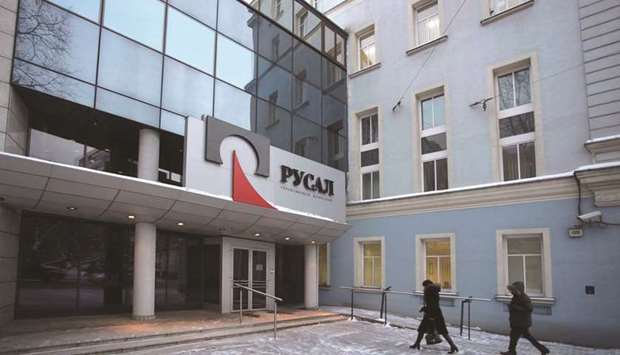Crucially, the US said that Rusal’s existing customers could negotiate some new contracts, but stopped short of lifting the aggressive sanctions off Oleg Deripaska, the Russian billionaire who has been accused by the US of links to organised crime and bribery.
“Particularly in alumina where you could have had a major crisis, this takes the grenade off the table,” said Eoin Dinsmore, an aluminium specialist at consultancy CRU Group.
While the tweak shows the Treasury is responding to the aluminium industry’s concerns, it will still require further action by the US to avert turmoil: without an extension of the October 23 deadline, companies will have to stop all dealings with Rusal by that date.
The situation is especially important now because it’s the time of year when aluminium makers are signing annual contracts. When the European aluminium industry met in Berlin last week, Rusal was largely frozen out of the contract negotiations. The move may also help reassure buyers of alumina, used to make aluminium, that Rusal’s crucial refinery in Ireland will be able to keep operating.
The move is “a proxy of an almost-full removal of sanctions,” industry researcher Harbor Intelligence said in a note to clients. The Treasury’s clarification only goes some way to removing the risks hanging over the aluminium industry. Banks are still likely to be cautious about financing deals with Rusal, meaning that it may take time to sign new contracts, according to two people familiar with the discussions.
“This update just gives Rusal’s clients the opportunity to sign deals with the company before any decision on sanctions is taken,” Andrey Panov, senior associate at law firm Norton Rose Fulbright in Moscow, said by phone.
What’s more, the Treasury warned Rusal customers off stockpiling the Russian company’s metal, saying that would only be authorised if it was “consistent with past practice.”
Overall, the move is likely to be more beneficial to buyers of Rusal’s metal than to the company itself and its controlling shareholder Oleg Deripaska.
While buyers of some aluminium products have few alternatives to Rusal, others may have already locked in other supplies, according to Dinsmore of CRU Group. As a result, he estimates that Rusal’s international sales may fall by 500,000 to 800,000 metric tonnes next year. Those sales traditionally accounted for more than three-quarters of the company’s total production, which was 3.7mn tonnes last year.
Those companies that continue buying from Rusal will also be handed greater bargaining power as a result of the Treasury’s condition that new deals be “consistent” with past dealings. That gives the Russian company little choice but to strike deals with its existing customers, including Glencore, the largest buyer of Rusal’s metal under a multi-year arrangement that was worth $2.4bn in 2017.
That caveat that new business must be consistent with past practice is “going to likely have a chilling effect”, said Brian O’Toole, a senior fellow at the Atlantic Council who previously worked in the Treasury’s sanctions unit.

